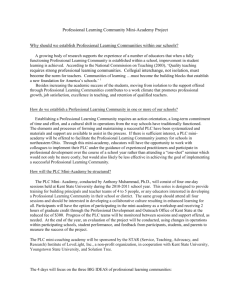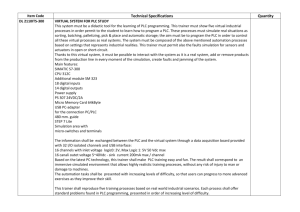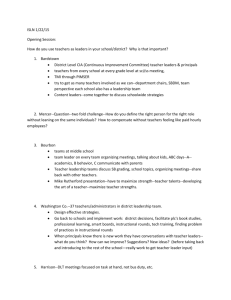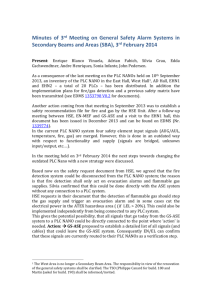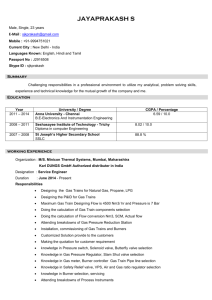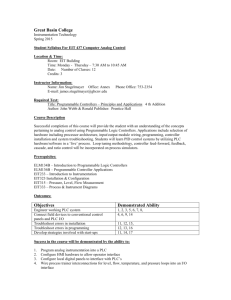The role of the PLC facilitator
advertisement
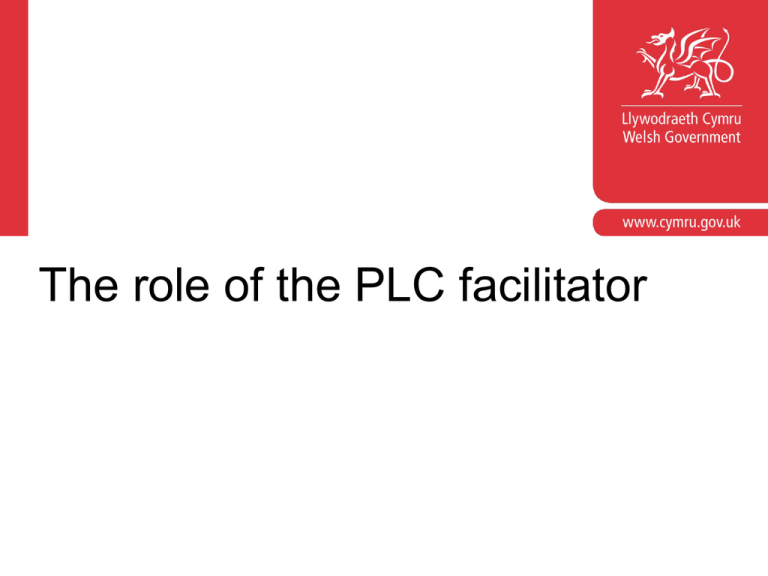
The role of the PLC facilitator Facilitation is: • providing appropriate levels of support and challenge for the PLC • ensuring pace, momentum and enthusiasm is maintained • keeping the PLC focused and on track • brokering resources • managing links and networking • critical to the success and sustainability of the PLC. Facilitation is not: • • • • command and control necessarily one person or one role fixed equated with formal roles or responsibilities either within the school or outside it. Facilitation will vary due to the . . . • • • • different stages of building a PLC characteristics and culture of the PLC attitude/approach of school management purpose of the PLC. What skills and dispositions does a PLC facilitator need? • • • • • • • Ability to mobilise. Build trust. Understanding of effective CPD. Brokerage skills. Access to current knowledge base. Good professional network. Knowledge of enquiry processes. The key characteristics that need to be developed within the PLC • Shared values and vision. • Collective responsibility for learners’ learning. • Collaboration focused on learning. • Professional learning: individual and collective. • Reflective professional enquiry. • Mutual trust. • Reciprocal accountability. Winning hearts and minds • Tapping into felt need. • Quick wins but long term goals. • Purposeful, regular meetings. • Agreed way of group work. Builds mutual trust and respect Mid-phase • Focussed challenge and support. • Refocusing and redefining based on data and evidence. • Fresh perspective and direction based on new information. Final phase Dissemination of: • findings • outcomes • potential action • limitations • identification of next focus/issue/question. Four key roles in facilitating a PLC • • • • Leadership. Coordination and administration. New learning and practice development. Knowledge and practice. Discussion • How might a facilitator contribute to the development of the characteristics that underpin a successful PLC?



